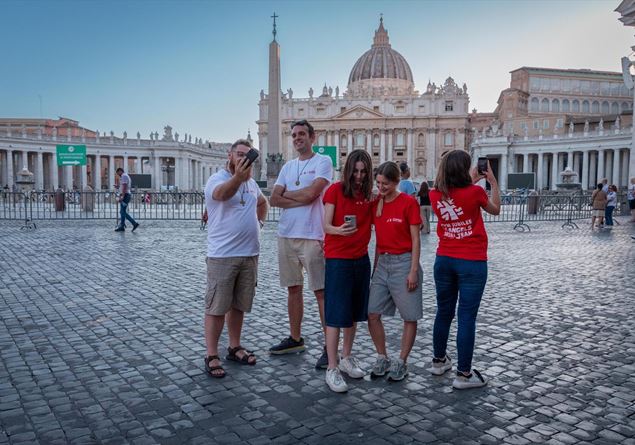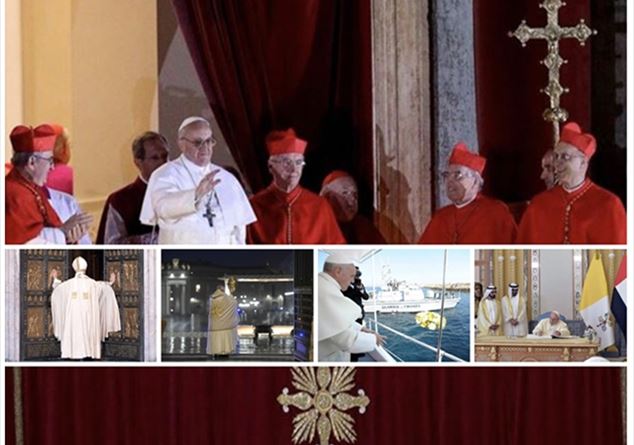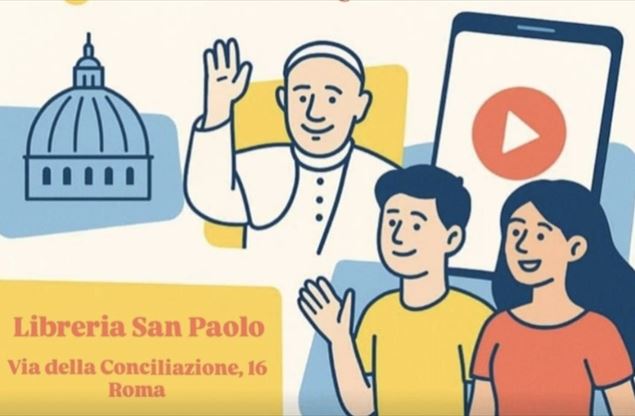For the kind concession of the publisher, we publish the article that appeared on Vita e Penfa Plus of Agostino Giovagnoli, full of contemporary history at the Catholic University of Milan.
by Agostino Giovagnoli
In the emotion of the first hours after the death of Pope Francis, many memories of this Pope intertwined: In the press and on social media, on television and on the radio, in private conversations and in public commemorations … there are really many who listened to it, seen, met at least once and all have received a strong impression. This intertwining of memories has come painting a fresco which, now by hour, are added new elements, new details, new colors. The more clear the traits that return more frequently in the memory of many: the sincere and direct style, human authenticity, evangelical radicalism … clear are also many images often referred to: The friend of the poor, the Pope of the suburbs, the peace preacher, the world leader, the enemy of all hypocrisy … The strong colors say how vast and profound it was the sign left by this pope in the heart of many. Instead, they help to understand how large the range of people that Francesco has reached the least bright colors, which sometimes sting in the gray of banality, on the edge of the fresco: it was “a normal person”, “knew how to speak to ordinary people”, “met everyone” …
These many voices, in their variety, are essential to understand who Francesco was. The “experts” – in any capacity they are presumed to be such – appear in difficulty. They struggle to identify the decisive features of his pontificate safely. There are those who think that if he has left an important mark in the life of many, the sign left in history was not equally important. It is confronted with John XXIII, whose convening of the Council was an event of undoubted historical relevance; With Paul VI, whose complex project and whose careful government have guided the difficult path of the post-conciliar Church; with John Paul II, to whom everyone recognizes a global vision capacity and to which many attribute the merit of having contributed to the collapse of the wall; With Benedict XVI, a great stature theologian … Compared to his predecessors, some say, Pope Francis did less or did it in a less accomplished way.
In reality, a sense of incompleteness has also accompanied the end of other pontificates: John XXIII saw only the beginning of the Council, upon the death of Paul VI, the Church seemed very divided, the travels missed in Moscow and Beijing were lived by John Paul II as a deep wound, the renunciation of the Petrine Ministry made that of Benedict XVI appear to be an interrupted pontificate. All pontificates are – to a certain extent – unfinished, because life never stops, changes situations, arouses new problems … It is a little true for all the Popes what Francesco has consciously chosen to do: open processes, rather than bringing them to fulfillment. It is therefore on the processes that has started more than on the results achieved that it is necessary to stop to reflect.
Among these is undoubtedly the one indicated byEvangelii Gaudium, The programmatic document of the pontificate beginning. The apostolic exhortation clearly indicated the path of “pastoral and missionary conversion”, a new and unsettling perspective, through which – it would be said in the words of San Paolo – what appeared in the Church “mortal”, that is, passed and fell “was absorbed by life”. Riotta today still appears to be a document of great freshness, novelty, originality. Evangelii Gaudium It was not welcomed with the attention that Francesco hoped: he made him understand himself by addressing the Italian bishops, two years later, an invitation to read it. But many prospects, proposals and intuitions of that document have been gradually implemented. The centrality of the poor in the life of the Church has now entered the common feeling of many believers; First of all seeking the “smell of sheep” is a goal that bishops and priests place themselves more than before; that the rejection of migrants is a scandal incompatible with the Gospel is today much clearer to the men and women of the church; Do not discriminate and not remove the “different” for ethnic-national, economic or gender reasons from the Gospel, is practiced more frequently in ecclesial communities … perhaps it is true that the institutional reforms introduced by Pope Francis-structure of the Curia, management of economic resources etc. – They do not appear completely defined. But this was not at the center of its action, inspired above all by an anxiety of living and making the Gospel live which requires, firstly, a profound change of mentality. That’s why, before rushingly judging the pontificate of Francesco, it is better to put himself in careful listening to that vast people who yesterday met him and who today cries his disappearance.










